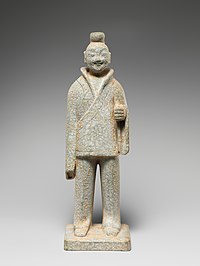Shanku

Shanku is a Sanskrit word that means “conch.” A conch is a seashell that looks like a snail shell, except it’s really big and can be blown like a horn. In Indian culture, it is considered a sacred instrument and is often used in rituals, prayers, and ceremonies.
When someone blows into the shanku, it makes a loud, trumpet-like sound. This sound is believed to purify the surrounding environment and evoke positive energy. The vibrations produced by the sound waves of the shanku are said to stimulate the chakras, or energy centers in the body, and help balance the mind, body, and soul.
The shanku is also an important symbol in Hindu mythology. In the ancient Indian epic, the Mahabharata, Lord Krishna is depicted holding a shanku, which he uses to signal the start of the war between the Pandavas and the Kauravas. The conch also features prominently in the story of Lord Vishnu, who is said to have blown the shanku to create the universe.
In addition to its spiritual significance, the shanku also has practical uses. Historically, it was used as a trumpet to signal the arrival of kings and important guests. In some parts of India, it is still used as a communication device by fishermen and farmers who work in remote areas.
In conclusion, the shanku is a sacred instrument that has been used in Indian culture for thousands of years. It is a symbol of spirituality, purity, and positive energy, and its sound is believed to have healing properties.
When someone blows into the shanku, it makes a loud, trumpet-like sound. This sound is believed to purify the surrounding environment and evoke positive energy. The vibrations produced by the sound waves of the shanku are said to stimulate the chakras, or energy centers in the body, and help balance the mind, body, and soul.
The shanku is also an important symbol in Hindu mythology. In the ancient Indian epic, the Mahabharata, Lord Krishna is depicted holding a shanku, which he uses to signal the start of the war between the Pandavas and the Kauravas. The conch also features prominently in the story of Lord Vishnu, who is said to have blown the shanku to create the universe.
In addition to its spiritual significance, the shanku also has practical uses. Historically, it was used as a trumpet to signal the arrival of kings and important guests. In some parts of India, it is still used as a communication device by fishermen and farmers who work in remote areas.
In conclusion, the shanku is a sacred instrument that has been used in Indian culture for thousands of years. It is a symbol of spirituality, purity, and positive energy, and its sound is believed to have healing properties.
Related topics others have asked about:
